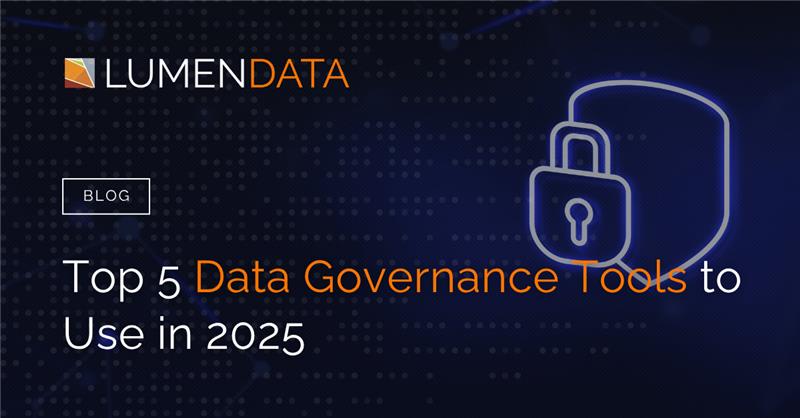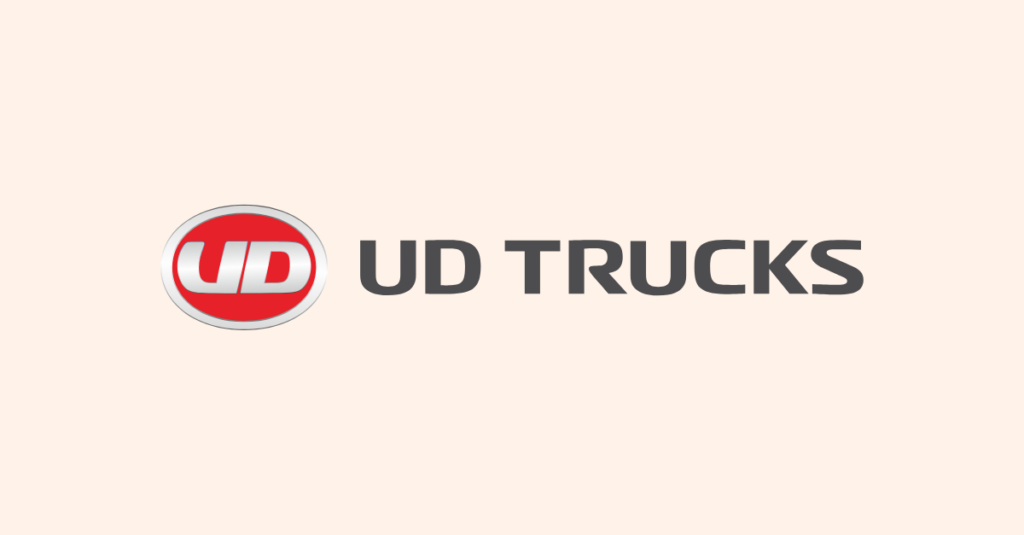Share this on:
What You'll Learn
Data governance tools are software platforms that help you manage the policies, processes, workflows, and controls that ensure data across your organization is accurate, secure, compliant, and usable throughout its lifecycle. They transform raw data into a trusted asset, and this is done by standardizing critical business information and enabling self-service intelligence. This blog will cover why modern data governance tools matter and the top ones you could use to accelerate your governance projects. Read on.
Who is responsible for data governance?
- Metadata management & data cataloging
- Data lineage tracking
- Data quality monitoring and data profiling
- Data policy enforcement & compliance reporting
- Role-based access controls
- Data stewardship workflows
- Technical and business teams’ collaboration
Who is responsible for data governance?
- Build data accuracy & trust: Distributed data systems often lead to inconsistencies. There are duplicate records and outdated entries. Around 82% of organizations say that data silos interrupt their workflows. And all of this decision-making. Data governance tools enforce data standards and workflows that maintain data accuracy.
- Enable regulatory compliance: There are critical regulations like GDPR, HIPAA, CCPA, and others that your enterprise needs to comply with. You must demonstrate data usage and data lineage transparency. Governance tools can help you streamline compliance via audits and policy enforcement.
- Facilitate data quality & governance at scale: 402.74 million terabytes of data is produced every day. Your business generates data in great volumes too. One question – isn’t it impractical to manually manage data quality and access? Yes, right? This is where data governance tools come into play. They automate data profiling, data lineage tracking, data classification, and anomaly detection to scale governance efforts.
- Generate faster, reliable insights: Study says that only 46% of organizations have trust in their data. When you have reliable and trustworthy data, reliable insights are generated. And there’s informed decision making. Governance tools catalog data, track lineage, and set guardrails. This enables business users to safely explore data without IT bottlenecks. Better agility is enabled.
- Enable trust & accountability: Modern data governance tools help establish stewardship frameworks with clear ownership, policies, and metadata. They help promote data stewardship culture and accountability across the enterprise.
Top 5 Data Governance Tools in 2025
Based on recent research, here are the five top-tier governance platforms that you could use:
Collibra Data Governance
The Collibra Data Governance software provides you with automated, federated governance. This means that your organization can have data governance standards centralized but at the same time, every business department can choose and decide how they implement these standards. The platform has been recently named a Leader in the 2025 Gartner® Magic Quadrant™ for Data and Analytics Governance Platforms.
Some of the leading brands like Kingfisher, Equifax, and Heineken have leveraged Collibra for their data intelligence initiatives. One of Collibra’s biggest advantages is its ability to define and manage business glossaries, data ownership, and usage policies at scale. With Collibra, you can create detailed workflows that route metadata changes through approval chains. The platform makes sure that governance is an operational process.
Collibra also supports automated metadata harvesting, data lineage visualization, and policy enforcement. Its UI is highly intuitive and enables business users to search for trusted data without relying on IT. Not only this, but the platform also integrates with leading cloud services, data warehouses, and BI tools. It includes data stewardship dashboards, data quality integration, and usage metrics for governance performance tracking.
Collibra’s pricing is subscription-based and requires an onboarding implementation package.
Alation
Alation is a leading data governance tool that’s known for its AI-driven data catalog and collaboration-first approach. The platform was named a Leader & Customer Favorite in The Forrester Wave™ Data Governance Solutions, Q3 2025.
The data governance solution enables active governance and facilitates better AI development for your enterprise. Atlan simplifies data discovery for both data analysts and business users. It does so by enabling natural language search. This means that teams can find assets using plain-English queries. Alation leverages behavioral intelligence to rank assets based on popularity, usage, and trustworthiness. Its AI engine, ALLIE, helps auto-suggest data definitions and metadata relationships.
Alation empowers decentralized teams. It allows users to annotate datasets, upvote trusted assets, and flag potential issues. Its popularity stems from its wiki-style interface and integration with analytics tools like Tableau, Power BI, and Snowflake. It also supports policy management, sensitive data tagging, and stewardship assignment.
Alation does not publish official pricing. Costs vary based on number of users, connectors, and enabled modules. A pilot version or MVP license is often available for mid-sized teams.
Informatica Axon Data Governance
Axon is Informatica’s purpose-built governance platform focused on structured policy management, stewardship roles, and data transparency. The tool helps you drive more collaborative data governance. Axon enables you to leverage AI-driven automation so that you can power your teams to find and access data intelligence.
We could say that Informatica Axon Data Governance is particularly suited for regulated industries that need clearly defined data lineage, data ownership, and data compliance frameworks. The platform helps organizations build centralized glossaries, define business rules, and implement governance workflows.
Axon’s key differentiator is its workflow engine. It allows you to initiate governance requests, submit approvals, and assign responsibilities with full traceability. Please note that it integrates tightly with Informatica’s technical stack like EDC and Data Quality and bridges the business-technical divide. Visual data lineage maps, policy tracking, and issue logs make audits and compliance reporting straightforward.
Informatica provides users with a flexible, consumption-based pricing model. Axon operates on a subscription model. It scales upward based on user count, data volume, and feature sets. Enterprises with existing Informatica licenses may benefit from bundled pricing with other tools like Data Quality and Integration.
Informatica Cloud Data Governance and Catalog (CDGC)
CDGC is Informatica’s modern, cloud-native governance solution, built into its Intelligent Data Management Cloud. The solution helps you enable predictive data intelligence for data and analytics governance. The platform is officially listed and reviewed on Gartner Peer Insights under the Data & Analytics Governance Platforms category.
CDGC combines powerful AI-based data discovery with automated cataloging, data classification, and data lineage. Using CLAIRE®, its embedded AI engine, CDGC can detect sensitive data, recommend tags, infer relationships, and visualize lineage. And none of these activities require human intervention.
If you are a cloud-first organization – Informatica Cloud Data Governance and Catalog is the ideal match for you. CDGC offers fine-grained governance controls, workflow automation, a glossary-builder, data quality scorecards, and curated data marketplaces. The best part? It integrates with cloud platforms like AWS, Azure, and Google Cloud, and supports hybrid environments. You can also track asset usage, certify datasets, and assign trust scores.
Informatica CDGC follows a flexible pay-as-you-go model based on Informatica Processing Units (IPUs). It’s available via public cloud marketplaces and supports modular growth without large upfront investment.
IBM Knowledge Catalog
IBM Knowledge Catalog is part of IBM’s Cloud Pak for Data suite. It offers end-to-end data governance and privacy protection capabilities. The solution supports cataloging of structured, semi-structured, and unstructured data, along with metadata enrichment, automated classification, lineage tracking, and policy enforcement. IBM was named a Leader in the 2024 Gartner® Magic Quadrant™ for Data and Analytics Governance Platforms.
What sets IBM apart is its scalability across hybrid environments and its built-in AI tools for metadata management. The platform offers semantic search, role-based access controls, and privacy-preserving features such as data masking and sensitive data detection. It’s ideal for large, complex organizations with diverse data ecosystems and strict compliance needs. One of the best benefits of IBM Knowledge Catalog is that Knowledge accelerators help you save more than 70% of manual labor for regulatory compliance. Plus, thanks to its LLM-based metadata enrichment, there’s more than 90% reduction in time and effort for mapping business terms to data.
IBM offers several pricing tiers:
- Lite: Free for up to 50 assets.
- Standard: Starts at $200/month based on data asset volume.
- Enterprise: $18,000+/month for 100,000+ assets and full governance features.
The model is flexible and billed based on usage (assets, compute units, and users).
How to Select the Right Tool
If you are looking to choose the most beneficial data governance platform for your enterprise, you need to first find answers to some of the most important questions below:
#Question 1 What are your core governance priorities?
Are you looking for a governance solution that can do intelligent data cataloging and lineage? Or do you want to focus on data quality and profiling? If you are a regulated industry, your priority must be data privacy, audit trails, and policy automation. Isn’t it? If you are looking for AI & automation or integration with BI platforms and cloud systems – select a governance tool that primarily focuses on these aspects.
#Question 2 Is the governance platform a technical fit?
Before finalizing your data governance platform, you need to check its deployment model and if it’s appropriate for your enterprise. Decide if you would like cloud SaaS or on-premises or hybrid. Se if the platform can handle your data volumes. And if it’s business user-friendly.
#Question 3 Is the governance tool a business & financial fit
Next aspect is the pricing model. What you comfortable with? Subscription, tier-based, user-based, or feature-based licensing? Make sure you have ROI clarity. Estimate costs vs benefits. See if there’s vendor support for training and consulting.
#Question 4 Is the data governance solution future-proof?
If you are a forward-thinking enterprise, you might want to check if the governance tool provides Gen AI features and if it’s compatible with emerging frameworks such as data mesh and self-service analytics.
Checklist: What to Look for in a Governance Tool
The process of choosing the right governance tools can get confusing. You can use this evaluation checklist when comparing tools:
- Metadata/catalog & business glossary
- Data lineage
- Data quality & profiling
- Policy & compliance automation
- Access controls & stewardship workflows
- Integration capabilities
- User experience & architecture
- Security & privacy features
- AI/ML capabilities
- Support
- Total Cost of Ownership
Now, some of these features are a must-have in any governance tool such as metadata catalog, data quality, lineage, access controls, security, privacy, and access controls. Others might look optional based on your business needs or budget.
Get high-impact data governance services with LumenData
LumenData can provide you with top-class data governance consulting and implantation in the U.S. We provide support for choosing the right data governance tool for your business. We conduct an initial governance maturity assessment and then recommend the best tools that can help accelerate your data governance efforts. We help enterprises with technology implementation too. We are partners with some of the top data governance platforms like Informatica and Collibra. Connect today to understand how we can help you stay on top of governance frameworks and beat your competition.
About LumenData
LumenData is a leading provider of Enterprise Data Management, Cloud and Analytics solutions and helps businesses handle data silos, discover their potential, and prepare for end-to-end digital transformation. Founded in 2008, the company is headquartered in Santa Clara, California, with locations in India. With 150+ Technical and Functional Consultants, LumenData forms strong client partnerships to drive high-quality outcomes. Their work across multiple industries and with prestigious clients like Versant Health, Boston Consulting Group, FDA, Department of Labor, Kroger, Nissan, Autodesk, Bayer, Bausch & Lomb, Citibank, Credit Suisse, Cummins, Gilead, HP, Nintendo, PC Connection, Starbucks, University of Colorado, Weight Watchers, KAO, HealthEdge, Amylyx, Brinks, Clara Analytics, and Royal Caribbean Group, speaks to their capabilities.
For media inquiries, please contact: marketing@lumendata.com.
Authors

Content Writer

Technical Lead



